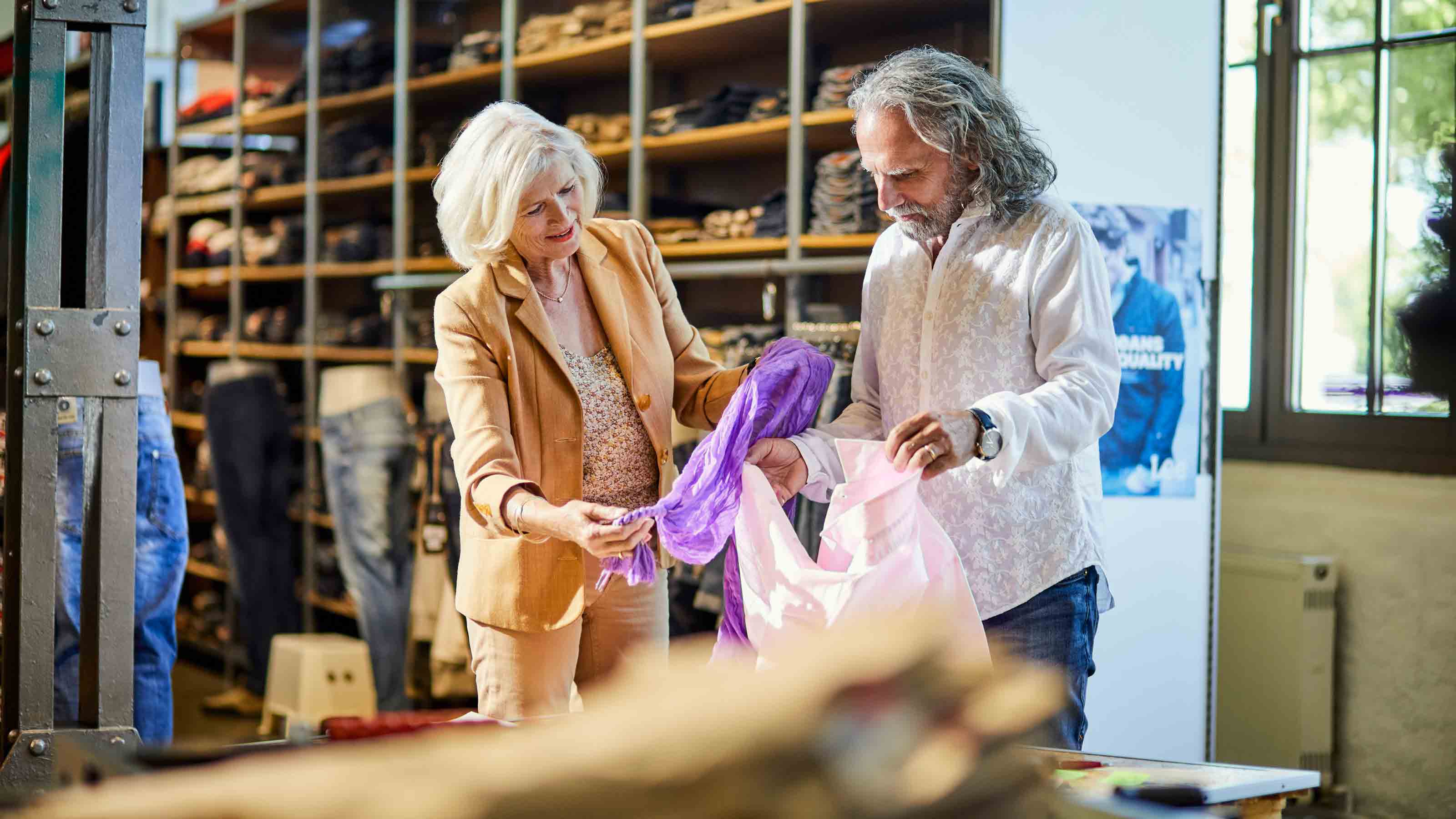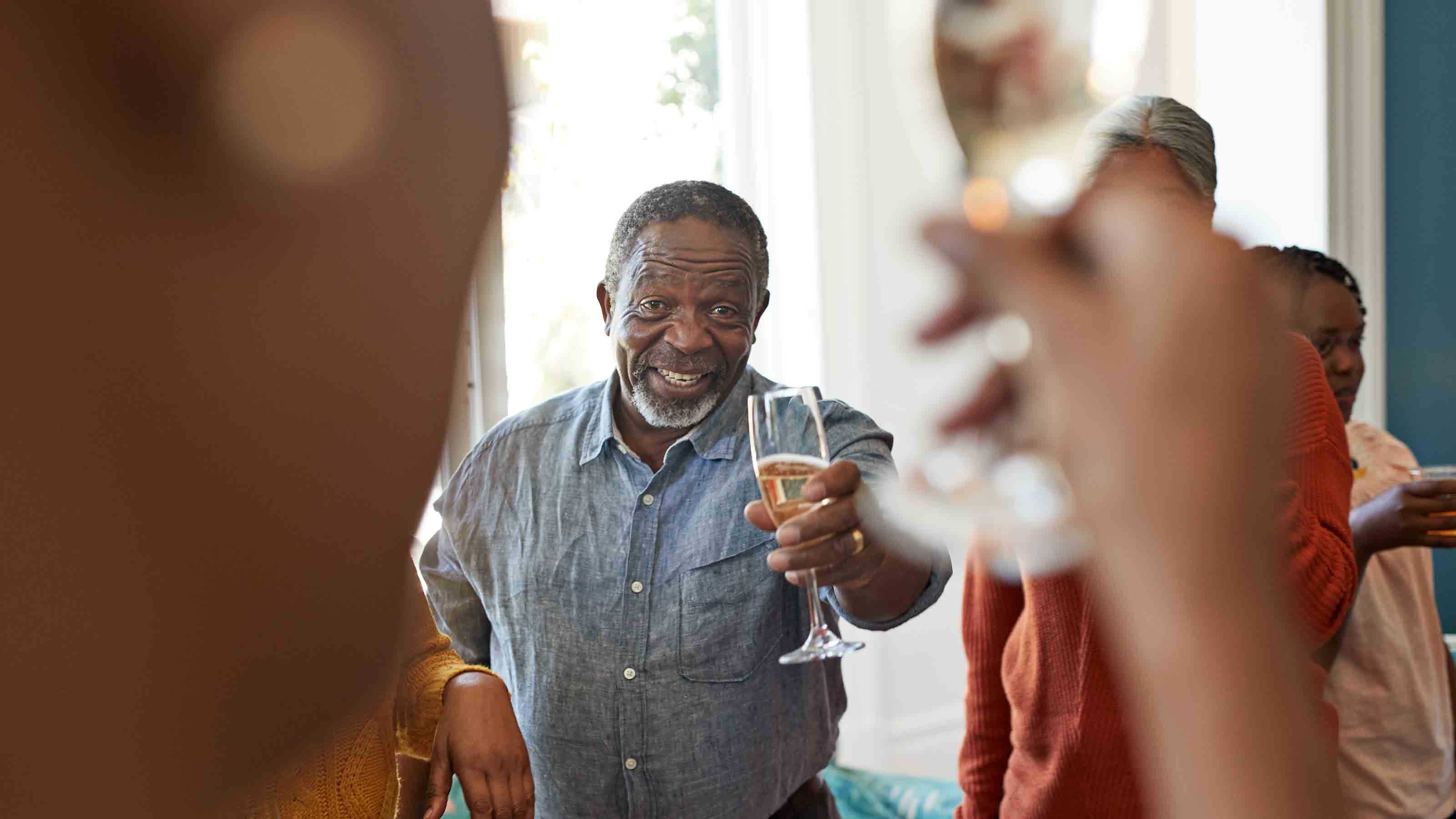
Profit and prosper with the best of Kiplinger's advice on investing, taxes, retirement, personal finance and much more. Delivered daily. Enter your email in the box and click Sign Me Up.
You are now subscribed
Your newsletter sign-up was successful
Want to add more newsletters?

Delivered daily
Kiplinger Today
Profit and prosper with the best of Kiplinger's advice on investing, taxes, retirement, personal finance and much more delivered daily. Smart money moves start here.

Sent five days a week
Kiplinger A Step Ahead
Get practical help to make better financial decisions in your everyday life, from spending to savings on top deals.

Delivered daily
Kiplinger Closing Bell
Get today's biggest financial and investing headlines delivered to your inbox every day the U.S. stock market is open.

Sent twice a week
Kiplinger Adviser Intel
Financial pros across the country share best practices and fresh tactics to preserve and grow your wealth.

Delivered weekly
Kiplinger Tax Tips
Trim your federal and state tax bills with practical tax-planning and tax-cutting strategies.

Sent twice a week
Kiplinger Retirement Tips
Your twice-a-week guide to planning and enjoying a financially secure and richly rewarding retirement

Sent bimonthly.
Kiplinger Adviser Angle
Insights for advisers, wealth managers and other financial professionals.

Sent twice a week
Kiplinger Investing Weekly
Your twice-a-week roundup of promising stocks, funds, companies and industries you should consider, ones you should avoid, and why.

Sent weekly for six weeks
Kiplinger Invest for Retirement
Your step-by-step six-part series on how to invest for retirement, from devising a successful strategy to exactly which investments to choose.
Many retirement planning experts suggest retirees need 80% of their pre-retirement income to make ends meet. The 2025 Planning & Progress Study by Northwestern Mutual puts the figure at $1.26 million to retire comfortably. Some experts encourage saving even more to avoid running out of money.
Facing such seemingly overwhelming goals, 66% say they expect to retire after age 65 or do not plan to retire at all, according to research from the Transamerica Center for Retirement Studies, released in 2024.
However, that 80% rule isn’t one size fits all and could even lead to undue anxiety as you plan for retirement.
Consumer spending decreases significantly as you age. So, to know how much you need to save for retirement, it’s important to know what your spending will look like once you retire. Consider these nine budget-line items you’ll likely spend less on in retirement. Then, check out our companion article on Nine Things You'll Spend More on in Retirement.
Data in this article is collected from the Bureau of Labor Statistics (2022) and the BLS Consumer Expenditure Survey for 2024 unless otherwise indicated.

1. You’ll spend less on commuting in retirement
Although some adults over the age of 65 are unretiring and going back to work, for many who are voluntarily signing off on their careers, saying goodbye to rush-hour traffic and long commutes is a highlight of retirement. Not only will you be spending less on gas, but you’ll also be saving money on vehicle maintenance, licence and registration costs (or bus and rail fare).
Older households spend an average of $9,538 on transportation costs, including a vehicle, insurance and gas, according to the Federal Reserve Bank. These costs accounted for about 15% of all their spendingon average, according to MoneyTalks News (2024).
That figure has risen sharply over the past decade, mainly due to increases in car insurance and rising vehicle prices. Multiply that number by two, and you still have two cars in the garage.

2. You’ll spend less on clothing in retirement
If you’re heading back to the office, you’re likely spending what’s needed to look sharp at your job. In retirement, you won't need too many pressed shirts or high heels, as your wallet gets a break from updating your work wardrobe.
According to the BLS Consumer Expenditure Survey for 2024, households with a person aged 65–74 spent an average of $1,222 annually on apparel and services, versus $2,041 for all age groups.
A word of caution, though: Although household spending on apparel decreases overall in retirement, your loungewear or casual wear clothing costs may rise. Marguerita Cheng, the chief executive officer at Blue Ocean Global Wealth, says that she sees spikes in spending from recently retired clients who feel the need to update casual wardrobes in the first few years of retirement. Remember, you only need so many golf pants.

3. You’ll spend less on food in retirement
Even if you dream of a retirement filled with brunch dates and steak dinners (on the early bird discount, of course), chances are your total food bill will be lower.
That said, from 2020 to 2024, grocery prices in the U.S. shot up by 23.6%. For 2025, they’re projected to have increased by about 2.1%, bringing the overall upsurge to roughly 25.7% over five years. For 2026, projections estimate an increase of about 2.3%, bringing the overall upsurge to roughly 28.6% over six years, according to the USDA.
Everyone has to eat, but with such an increase in food prices, saving on groceries becomes much harder for retirees — especially those on fixed incomes.
According to Erik Hurst and Mark Aguiar, professors from the University of Chicago and Princeton University, the logic that retirees will spend less on food is simply that retirees are more careful, price-conscious shoppers. When you’re not in a hurry at the grocery store, you’re more likely to compare prices on similar products, use coupons and spend more time planning meals for the week ahead. You're also more likely to buy unnecessary items while walking the aisles, so keep that in mind.
They go on to say that when you’re working, much of your dining out may be quick lunch runs or costly lattes on the way to work when you’re pressed for time or not in control of the agenda. Instead of patronizing fast-food restaurants more frequently, retirees reserve their eating-out dollars for table-service restaurants (and know how to work the discounts).

4. You’ll spend less on entertainment in retirement
No 9-to-5 job commitment means lots of time for lots of fun, am I right? Not so fast. There’s a common misconception that you’ll spend more money in retirement on entertainment — concerts, movies, clogging competitions, you name it — because you have more time. But the numbers don’t back this up.
On average, retirees spend about $3,000 to $4,000 annually on entertainment, which might include activities like dining out, hobbies, and attending cultural events. That's according to the most recent data from the BLS. The same survey showed that people under the age of 65 spent an average of $4,297 annually on entertainment ($358/month).
This decline likely corresponds with changes in mobility as you age. Or you just want to chill after years of slogging to the office. Even if you occasionally splurge to see your favorite band, you may find yourself opting to watch Netflix instead of going out every weekend. But be careful. Streaming services are popping up everywhere, and their layered charges for more and better options can jack up your entertainment bill. We’re looking at you, Paramount+, Discovery+, Disney+, and all your compadres.

5. Your housing costs will be cheaper in retirement
According to Nation Swell, 34% of homeowners over the age of 65 had a mortgage in 2022, compared to 70% of homeowners under age 65. Based on LendingTree’s analysis of U.S. Census Bureau 2023 American Community Survey data, in 2024, those percentages dropped considerably, with only about 19% to 20%, or 10.5 million U.S. homeowners aged 65 and older having a mortgage. In 2025, analyses of U.S. Census Bureau data by Marketplace 36% of people over the age of 65 had a mortgage, but 64% of homeowners owned their homes outright.
Are you in that lucky group?
To be sure, housing costs don’t disappear entirely in retirement. Even if you’ve paid off the mortgage, you’ll still spend money on home maintenance, property taxes and utilities. Downsizing in retirement? Keep in mind the moving costs associated with downsizing, relocating, or moving into senior-living facilities. Still, the average annual spending on housing for Americans who are 55 to 64 is $24,140. It decreases to $21,094 for those aged 65 to 74, and it drops further to $19,317 for those 75 and older.

6. You’ll spend less on education in retirement
Education is no longer confined to traditional school-based education for children but has expanded to lifelong learning for all ages. Thankfully, you can still pursue an education for little or no expense.
The average retired household also sees a big decrease in personal spending on education, with an average annual expenditure of just $373. And even if you are thinking about going back to school in retirement, many colleges and universities in every state offer classes free of charge (or nearly so) to those aged 65 (in some cases, 55 to 60) and up.
Note: In calculating spending in retirement, the Bureau of Labor Statistics does not factor in money retirees contribute toward college savings plans for their grandchildren.

7. You’ll spend less on alcohol and tobacco in retirement
You thought it would be the other way around. After all, in retirement, it’s always 5 o’clock. But no. According to the BLS Consumer Expenditure Survey, 2024, people over 65 generally drink and smoke less than younger adults. In 2024, 65% of those 65+ reported past-month alcohol use, vs. 47% for 18–34 year-olds. Cigarette use was about 8–10% for 65+ vs. 14.9% for people ages 35–64.
The average working household spends $352 a year on tobacco and tobacco products, while the average retired household spends $261 a year, about $100 less. Spending on alcohol also decreases in retirement. According to BLS data, the average working family spends $643 a year on alcoholic beverages, while the average retired family spends $469 a year.

8. You’ll spend less on pets and pet supplies in retirement
It’s often said that having a pet in retirement can benefit your health in big ways. A four-legged friend can provide companionship for lonely retirees and encourage regular exercise. However, the promised perks don’t have to translate into massive spending. Working households spend an average of $980 each year on pets and pet supplies, while retired households spend approximately $712 on average.
The Bureau of Labor Statistics says that having children, particularly older children at home, increases household spending on pets. Check out our article on what it really costs to own a dog or cat to learn more.

9. You’ll spend less on taxes in retirement
To ease the financial burden on retirees, many states waive or lower property taxes for those older than 65 and exempt a portion of retirement income, particularly from pensions, Social Security and retirement-savings plans, from state income taxes. These breaks come in different forms: exemptions, tax credits, deferrals, and rate freezes. Check out our articles on the most-overlooked tax breaks for retirees and people over 65, as well as our state-by-state guide to taxes on retirees.
Households where adults are younger than 65 spend $13,605 annually on personal taxes, compared to just $3,466 for retired households. Additionally, households where the adults are 55 to 64 spend an average of $3,072 each year on property taxes. This number declines to $2,808 for households where the adults are 65 to 75 years old and $2,408 in households where adults are 75 and older.
Related Content
Profit and prosper with the best of Kiplinger's advice on investing, taxes, retirement, personal finance and much more. Delivered daily. Enter your email in the box and click Sign Me Up.

Bob was Senior Editor at Kiplinger.com for seven years and is now a contributor to the website. He has more than 40 years of experience in online, print and visual journalism. Bob has worked as an award-winning writer and editor in the Washington, D.C., market as well as at news organizations in New York, Michigan and California. Bob joined Kiplinger in 2016, bringing a wealth of expertise covering retail, entertainment, and money-saving trends and topics. He was one of the first journalists at a daily news organization to aggressively cover retail as a specialty and has been lauded in the retail industry for his expertise. Bob has also been an adjunct and associate professor of print, online and visual journalism at Syracuse University and Ithaca College. He has a master’s degree from Syracuse University’s S.I. Newhouse School of Public Communications and a bachelor’s degree in communications and theater from Hope College.
- Kathryn PomroyContributor
- Erin BendigPersonal Finance Writer
-
 The New Reality for Entertainment
The New Reality for EntertainmentThe Kiplinger Letter The entertainment industry is shifting as movie and TV companies face fierce competition, fight for attention and cope with artificial intelligence.
-
 Stocks Sink With Alphabet, Bitcoin: Stock Market Today
Stocks Sink With Alphabet, Bitcoin: Stock Market TodayA dismal round of jobs data did little to lift sentiment on Thursday.
-
 Betting on Super Bowl 2026? New IRS Tax Changes Could Cost You
Betting on Super Bowl 2026? New IRS Tax Changes Could Cost YouTaxable Income When Super Bowl LX hype fades, some fans may be surprised to learn that sports betting tax rules have shifted.
-
 Your Adult Kids Are Doing Fine. Is It Time To Spend Some of Their Inheritance?
Your Adult Kids Are Doing Fine. Is It Time To Spend Some of Their Inheritance?If your kids are successful, do they need an inheritance? Ask yourself these four questions before passing down another dollar.
-
 The 4 Estate Planning Documents Every High-Net-Worth Family Needs (Not Just a Will)
The 4 Estate Planning Documents Every High-Net-Worth Family Needs (Not Just a Will)The key to successful estate planning for HNW families isn't just drafting these four documents, but ensuring they're current and immediately accessible.
-
 Love and Legacy: What Couples Rarely Talk About (But Should)
Love and Legacy: What Couples Rarely Talk About (But Should)Couples who talk openly about finances, including estate planning, are more likely to head into retirement joyfully. How can you get the conversation going?
-
 We're 62 With $1.4 Million. I Want to Sell Our Beach House to Retire Now, But My Wife Wants to Keep It and Work Until 70.
We're 62 With $1.4 Million. I Want to Sell Our Beach House to Retire Now, But My Wife Wants to Keep It and Work Until 70.I want to sell the $610K vacation home and retire now, but my wife envisions a beach retirement in 8 years. We asked financial advisers to weigh in.
-
 How to Add a Pet Trust to Your Estate Plan: Don't Leave Your Best Friend to Chance
How to Add a Pet Trust to Your Estate Plan: Don't Leave Your Best Friend to ChanceAdding a pet trust to your estate plan can ensure your pets are properly looked after when you're no longer able to care for them. This is how to go about it.
-
 Want to Avoid Leaving Chaos in Your Wake? Don't Leave Behind an Outdated Estate Plan
Want to Avoid Leaving Chaos in Your Wake? Don't Leave Behind an Outdated Estate PlanAn outdated or incomplete estate plan could cause confusion for those handling your affairs at a difficult time. This guide highlights what to update and when.
-
 I'm a Financial Adviser: This Is Why I Became an Advocate for Fee-Only Financial Advice
I'm a Financial Adviser: This Is Why I Became an Advocate for Fee-Only Financial AdviceCan financial advisers who earn commissions on product sales give clients the best advice? For one professional, changing track was the clear choice.
-
 Quiz: Are You Ready for the 2026 401(k) Catch-Up Shakeup?
Quiz: Are You Ready for the 2026 401(k) Catch-Up Shakeup?Quiz If you are 50 or older and a high earner, these new catch-up rules fundamentally change how your "extra" retirement savings are taxed and reported.

